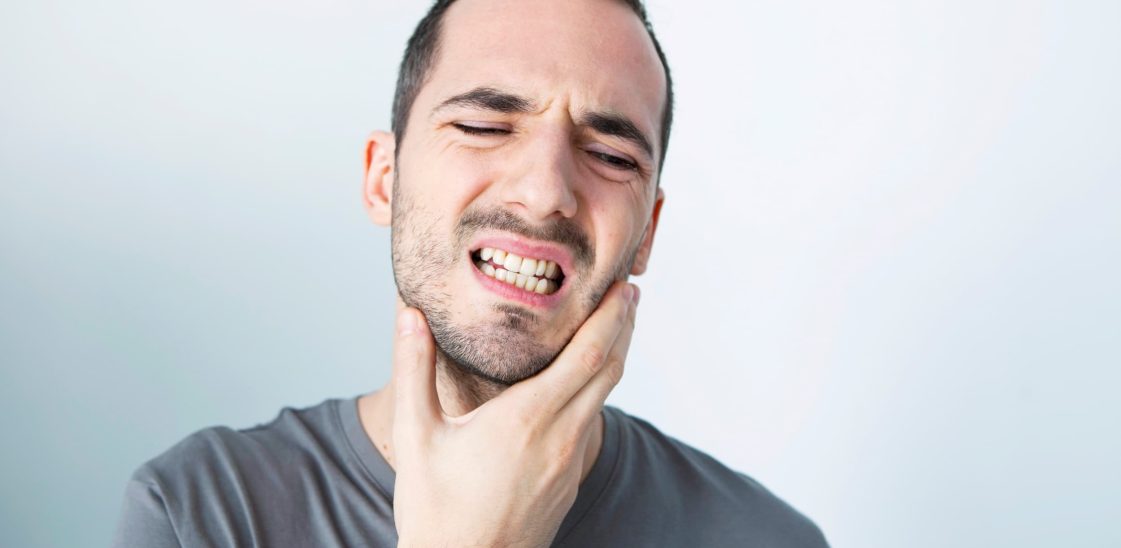
How to stop bruxism
Bruxism, also known as teeth grinding, can range from mildly discomforting to causing outright pain. At its worst, it can cause head and neck aches, as well as wearing down the teeth to cause sensitivity, cavities and even eventually tooth loss.
If you struggle with bruxism, there’s no need to panic. There are plenty of techniques you can use to try to reduce teeth grinding both while you’re awake and when you’re sleeping. For extra help, you can also speak to your dentist.[1]
How to prevent bruxism
If you’ve never had bruxism before, it can be hard to get your head around. You might think that stopping teeth grinding when you’re awake is as simple as just choosing not to do it. Unfortunately, teeth grinding is typically a subconscious or even unconscious action – some people are completely unaware they do it until it starts to cause pain or discomfort.
So what can you do to try to avoid grinding your teeth? Well, the first step is to try to be more mindful of what’s going on with your mouth at all times. As a starting point, you could take a moment as the clock strikes the hour to form an awareness of your teeth and mouth. Are you holding tension in your jaw or actually grinding your teeth at that moment? If you are, you can then make a conscious effort to stop the behaviour, which may help to reduce bruxism overall.[2]
Another thing you can do is try to reduce stress in your day-to-day life. This can be done either by removing stressful stimuli – for example, quitting a high-pressure job or reducing the number of classes you’re taking – or by improving your coping mechanisms for stress. The latter option may be more achievable for many, particularly if the stress is caused by something unavoidable – for instance, stress caused by looking after a newborn. Some people find the following practices helpful in reducing stress-related teeth grinding:
- Listening to music
- Meditation
- Regular physical activity
- Breathing exercises.[1]
Lack of good quality sleep is another factor that can contribute to bruxism. This can happen if you go through a spate of not getting enough sleep, as well as if the sleep you get isn’t high quality. If this sounds familiar to you, then improving your sleep hygiene may help you to get better rest and in turn reduce teeth grinding caused by lack of sleep.[1]
How to stop sleep bruxism
As we’ve mentioned, some people experience teeth grinding when they are asleep, at which point it’s impossible to be consciously aware of it and cut down on the behaviour. Fortunately, there are things you can do to limit the damage caused by nighttime teeth grinding while you work on your sleep and stress levels to tackle the underlying problem.
One of the biggest risks posed by teeth grinding is the danger of causing irreparable damage to your teeth that results in longer term pain and discomfort. This is due to the physical coming together of your two sets of teeth and the grinding, rubbing motion of one set against the other, which wears away the protective outer layer of your teeth unnecessarily.
In order to protect your teeth from this kind of excessive wear and tear, consider opting for a nighttime mouth guard. Dental guards such as Dentek’s Maximum Protection guards are specially designed to form a barrier between your two sets of teeth, preventing them from grinding against one another. All you need to do is put the dental guard on at night, then go to sleep with it in place so it can protect your teeth while you rest.
Additionally, if you find pain from bruxism is keeping you up at night, which may even cause more teeth grinding, then it’s a good idea to look into pain relief options such as paracetamol or ibuprofen to ease the discomfort. If you’ve been trying the above methods for a few weeks and haven’t seen any improvement in your teeth grinding, then book an appointment with your dentist. They can offer specialised advice that relates directly to your personal circumstances to help you solve the problem.[1]
Resources
[1] – https://www.nhs.uk/conditions/teeth-grinding/
[2] – https://www.bruxism.org.uk/how-can-i-stop-grinding-my-teeth.php?PHPSESSID=492b54fotdg4ootfqg11rejda3




